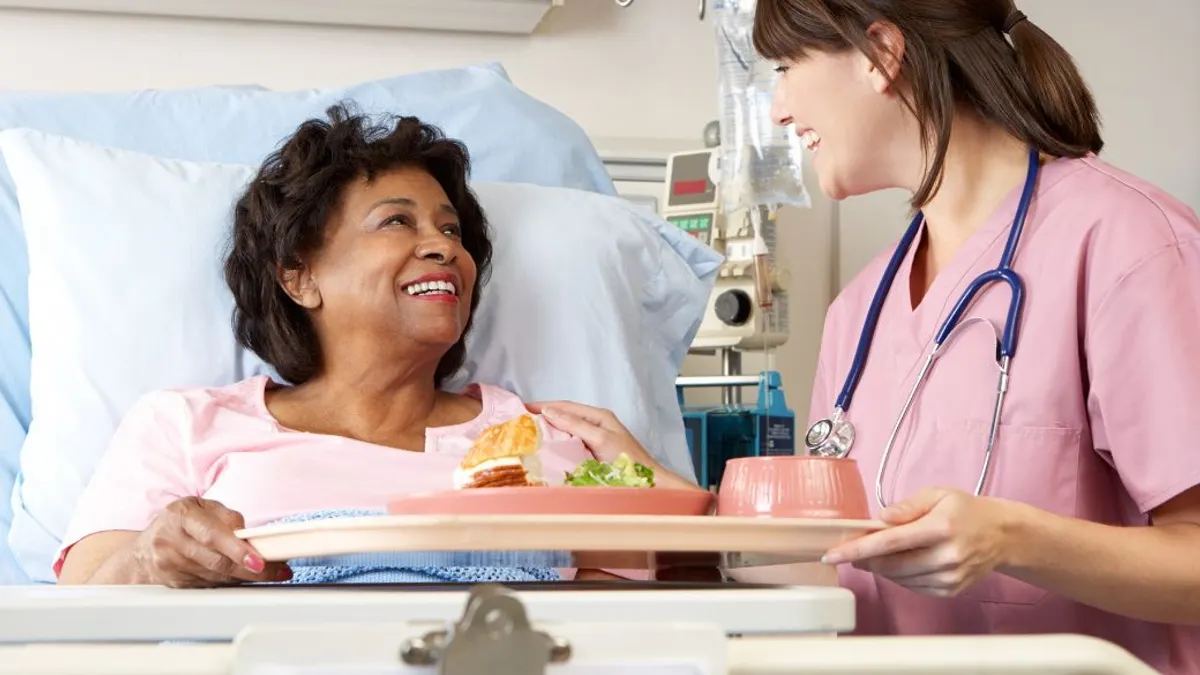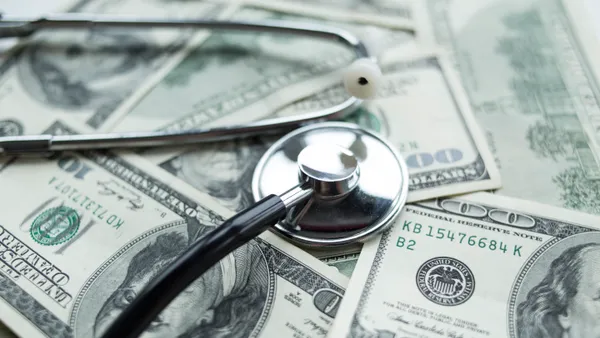In today’s healthcare landscape, patient satisfaction is more than just a goal—it’s a metric that directly influences hospital ratings, reimbursement, and reputation. One of the most scrutinized tools for measuring this is the Hospital Consumer Assessment of Healthcare Providers and Systems (HCAHPS) survey. While clinical care receives a lot of attention, many healthcare organizations are recognizing a less obvious contributor to positive patient experiences – foodservice.
The Role of Food in Healing—and Scoring
Patients often report that meals are among the few things they can control during a hospital stay. The quality, temperature, presentation, and timeliness of food can leave a lasting impression—positive or negative.
HCAHPS questions around the cleanliness, quietness, and overall experience of a hospital stay might not directly ask about food, but nutrition services can certainly influence these perceptions. A hot meal that arrives on time, tastes good, and supports a patient’s dietary needs shows attention to patient well-being and reflects positively on the facility. In contrast, poor food service can signal inefficiency or a lack of attention.
Equipment as a Silent Contributor to Patient Experience
Behind every successful foodservice program is a suite of commercial equipment that makes it all possible. From refrigeration units that preserve food safety to combi ovens that streamline preparation, properly functioning equipment directly impacts:
Meal Quality
- Malfunctioning ovens, steamers, or cook-chill systems can result in undercooked, overcooked, or unappealing meals. Consistency in texture, temperature, and flavor depends on reliable cooking and holding equipment.
On-Time Delivery
- Delays in meal prep due to equipment downtime can throw off meal schedules, frustrating patients and clinical teams alike. Hot food that turns cold in a broken holding cabinet loses its appeal—and its value.
Special Diet Execution
- Specialized equipment like blast chillers, rethermalizers, or allergen-safe prep stations support the safe delivery of therapeutic diets which is crucial for patients with conditions like celiac disease, renal issues, or diabetes.
Equipment Downtime = Patient Downtime
When foodservice equipment breaks down in a hospital, the consequences can be far-reaching. Delayed meals may interfere with patients’ medication schedules, while cold or poorly prepared food can lead to decreased intake, potentially hindering recovery. Staff morale can also decline as employees face increased pressure to find workarounds and maintain service quality despite the equipment challenges.
Conversely, well-maintained equipment empowers staff to focus on hospitality and patient engagement rather than damage control. With reliable tools in place, foodservice teams can deliver consistent, timely, and appealing meals that support patient health and enhance the overall care experience.
Investing in Performance, Reaping the Scores
Leading hospitals are increasingly investing in preventative maintenance programs to minimize equipment downtime, as well as energy-efficient and smart kitchen technologies that offer real-time diagnostics and improved uptime. Additionally, they are prioritizing staff training to ensure proper use and care of complex foodservice equipment, helping to extend equipment life and enhance overall performance.
This investment isn’t just about operational efficiency—it’s about delivering meals that meet clinical needs and exceed patient expectations, which translates to better word-of-mouth, survey responses, and overall HCAHPS performance.
The Importance of Kitchen Maintenance in Preventing HAIs
Regular maintenance of commercial kitchen equipment plays a vital role in reducing the risk of healthcare-associated infections (HAIs). While it’s widely recognized that ice is considered food—making regular, thorough ice machine maintenance critical—it's just as important to consistently monitor temperatures across the entire kitchen.
Malfunctioning refrigeration or warewashing equipment can become breeding grounds for harmful bacteria, threatening food safety and increasing the risk of pathogen transmission. A proactive maintenance program ensures proper food storage temperatures and supports a clean, sanitary environment that safeguards both patients and staff. Preventing HAIs is not only critical to patient health but also to preserving a facility’s reputation, quality ratings, and CMS reimbursement.
More Than a Meal
Hospital foodservice is no longer seen as an ancillary service. It is a critical part of the patient experience—and equipment performance is the backbone that supports it. As hospitals work to differentiate themselves in an increasingly patient-driven environment, aligning culinary excellence with operational reliability may be one of the most impactful steps they can take.
At Smart Care, we understand that reliable foodservice equipment is essential to delivering safe, satisfying patient meals. That’s why we partner with healthcare facilities to ensure their commercial kitchen equipment and patient floor ice machines are operating safely and efficiently. From responsive repairs to proactive maintenance programs, our comprehensive service offerings help minimize downtime, prevent costly disruptions, and support compliance with safety standards. By partnering with Smart Care, hospitals can stay focused on what truly matters—delivering exceptional care and supporting every step of the patient healing journey.










